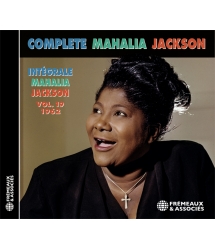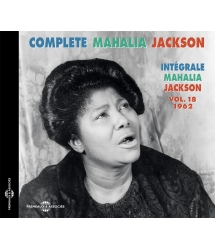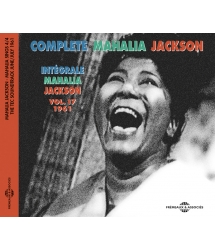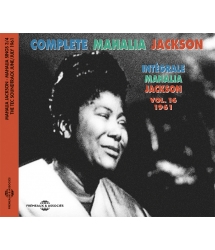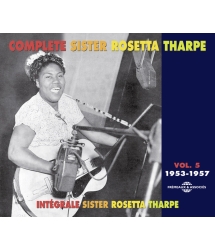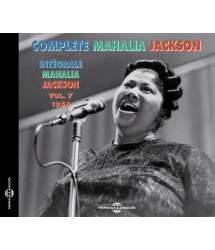- Our Catalog
- Philosophy
- Philosophers of the 20th century and today
- History of Philosophy (PUF)
- Counter-History and Brief Encyclopedia by Michel Onfray
- The philosophical work explained by Luc Ferry
- Ancient thought
- Thinkers of yesterday as seen by the philosophers of today
- Historical philosophical texts interpreted by great actors
- History
- Books (in French)
- Social science
- Historical words
- Audiobooks & Literature
- Our Catalog
- Jazz
- Blues
- Rock - Country - Cajun
- French song
- World music
- Africa
- France
- Québec / Canada
- Hawaï
- West Indies
- Caribbean
- Cuba & Afro-cubain
- Mexico
- South America
- Tango
- Brazil
- Tzigane / Gypsy
- Fado / Portugal
- Flamenco / Spain
- Yiddish / Israel
- China
- Tibet / Nepal
- Asia
- Indian Ocean / Madagascar
- Japan
- Indonesia
- Oceania
- India
- Bangladesh
- USSR / Communist songs
- World music / Miscellaneous
- Classical music
- Composers - Movie Soundtracks
- Sounds of nature
- Our Catalog
- Youth
- Philosophy
- News
- How to order ?
- Receive the catalog
- Manifesto
- Dictionnary











- Our Catalog
- Philosophy
- Philosophers of the 20th century and today
- History of Philosophy (PUF)
- Counter-History and Brief Encyclopedia by Michel Onfray
- The philosophical work explained by Luc Ferry
- Ancient thought
- Thinkers of yesterday as seen by the philosophers of today
- Historical philosophical texts interpreted by great actors
- History
- Books (in French)
- Social science
- Historical words
- Audiobooks & Literature
- Our Catalog
- Jazz
- Blues
- Rock - Country - Cajun
- French song
- World music
- Africa
- France
- Québec / Canada
- Hawaï
- West Indies
- Caribbean
- Cuba & Afro-cubain
- Mexico
- South America
- Tango
- Brazil
- Tzigane / Gypsy
- Fado / Portugal
- Flamenco / Spain
- Yiddish / Israel
- China
- Tibet / Nepal
- Asia
- Indian Ocean / Madagascar
- Japan
- Indonesia
- Oceania
- India
- Bangladesh
- USSR / Communist songs
- World music / Miscellaneous
- Classical music
- Composers - Movie Soundtracks
- Sounds of nature
- Our Catalog
- Youth
- Philosophy
- News
- How to order ?
- Receive the catalog
- Manifesto
- Dictionnary
1957 - 1958
Ref.: FA1318
EAN : 3561302131825
Artistic Direction : JEAN BUZELIN
Label : Frémeaux & Associés
Total duration of the pack : 1 hours 14 minutes
Nbre. CD : 1
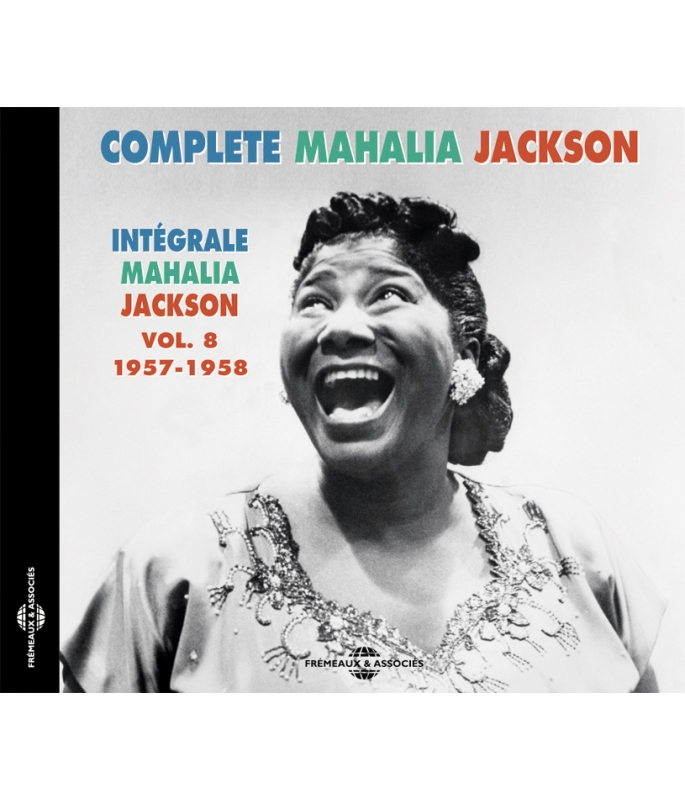
1957 - 1958
1957 - 1958
“1958 saw two highlights in Mahalia Jackson’s career: her unique encounter with Duke Ellington and her legendary concert at the Newport Jazz Festival.”
-
PisteTitleMain artistAutorDurationRegistered in
-
1TroubleMahalia JacksonD.M. Akers00:03:271957
-
2Lead on Lord JesusMahalia JacksonD.M. Akers00:03:151957
-
3He's a Light unto My PathwayMahalia JacksonD.M. Akers00:03:171957
-
4Impatient HeartMahalia JacksonD.M. Akers00:02:531957
-
5Life EternalMahalia JacksonD.M. Akers00:03:181957
-
6Hush The WindMahalia JacksonTraditionnel00:01:201957
-
7He's That Sows in TearsMahalia JacksonTraditionnel00:02:151957
-
8Steal Away to JesusMahalia JacksonTraditionnel00:01:351957
-
9Come SundayMahalia JacksonDuke Ellington00:08:031958
-
10The 23 rd PsalmMahalia JacksonDuke Ellington00:03:071958
-
11An Evening PrayerMahalia JacksonC.M. Battersby00:03:261958
-
12A City Called HeavenMahalia JacksonH. Frey00:03:491958
-
13I'M on My WayMahalia JacksonTraditionnel00:03:291958
-
14It Don't Cost Very MuchMahalia JacksonT.A. Dorsey00:04:041958
-
15Didn't It RainMahalia JacksonTraditionnel00:02:411958
-
16He's Got The Whole World in His HandsMahalia JacksonTraditionnel00:02:421958
-
17My God is RealMahalia JacksonK. Morris00:03:431958
-
18I'm Going To Live The Life I Sing About My SongMahalia JacksonT.A. Dorsey00:04:061958
-
19The Lord Prayer'sMahalia JacksonA.H. Malotte00:03:491958
-
20Walk Over God's HeavenMahalia JacksonT.A. Dorsey00:03:011958
-
21Joshua Fit The Battle Of JerichoMahalia JacksonTraditionnel00:02:341958
-
22His Eye is on The SparrowMahalia JacksonC.D. Martin00:04:301958
INTÉGRALE MAHALIA JACKSON VOL. 8
COMPLETE MAHALIA JACKSON
INTÉGRALE MAHALIA JACKSON VOL. 8 1957-1958
Notre précédent volume consacré à l’œuvre enregistré de Mahalia Jackson s’achevait sur un très beau God Is So Good enregistré le 28 septembre 1956. (1) Ce gospel song avait été enregistré une première fois confidentiellement par son auteur, l’excellente chanteuse Doris Mae Akers, en 1953. Amie proche de Mahalia mais peu connue de ce côté-ci de l’Atlantique, Doris Akers entame, à partir de janvier 1957, lorsqu’elle reprend God Is So Good, une fructueuse carrière phonographique pour RCA-Victor, notamment à la tête d’un groupe mixte, les Simmons Akers Singers. En mars 1957, elle enregistre Life Eternal, Lead On Lord Jesus, Trouble et He’s A Light Unto My Pathway que va reprendre, quelques mois plus tard, Mahalia elle-même. En ce début d’année 1957, Mahalia Jackson achète une maison à Chicago, pour la somme de 40 000 dollars au 8353 Indiana Avenue, en bordure du South Side noir et du quartier de la middle class blanche. Quelques semaines plus tard, une personne, peut-être un voisin, tire des coups de carabine dans les fenêtres de son salon. Ce qui démontre que le statut de “grande vedette“ ne constitue pas un frein aux agressions racistes. Après enquête, la police n’a pas identifié le coupable — comme c’est étrange ! —, mais l’événement est relayé par la presse, la radio et la télévision, ce qui mobilise de nombreuses personnalités noires comme blanches, dont Dinah Shore qui demande à la chaîne CBS, à Hollywood, d’inviter Mahalia à l’un de ses “Dinah Shore Shows”. Ce qui n’a pas été facile, le producteur Bob Banner n’ayant jamais eu la permission d’engager un artiste noir quel qu’il soit. L’autorisation est donnée et Mahalia se rend au studio sans inquiétude, elle n’avait jamais travaillé avec une star féminine avant, mais elle voyait Dinah Shore à la télévision. Rien n’avait été vraiment préparé mais tout se passa très bien entre elles. Côté musique, ce fut plus difficile : Mahalia refusa les orchestrations et ne voulut pas chanter avec les cuivres qui, dit-elle, n’étaient pas dans the spiritual quality. Les musiciens eux-mêmes n’étaient pas habitués à accompagner du gospel, mais Mildred Falls prit les choses en main, dirigea les opérations et entraîna la rythmique dans He’s Got The Whole World In His Hands. Les deux artistes, qui sympathisèrent tout de suite, eurent une discussion sur le blues pendant laquelle Mahalia fit ses commentaires habituels sur le sujet et, ensemble, entonnèrent Down By The Riverside.
Dans la foulée du show, Mahalia Jackson reçut un télégramme de Las Vegas : “Chantez votre propre répertoire et nous vous offrons 25 000 dollars par semaine”. 25 000 dollars, un record pour l’époque, qui plus est pour une femme noire et pour chanter du gospel dans un club ! On lui propose même de ne pas servir d’alcool durant sa prestation. Malgré ses réticences habituelles, Mahalia est tentée, mais après une nuit blanche et une lutte intérieure avec elle-même, elle refuse… La chanteuse participe le 17 mai à un “Prayer Pilgrimage for Freedom” organisé au Mémorial Lincoln à Washington (D.C.). Cette manifestation vit défiler quatorze intervenants dont le dernier annoncé n’était autre que le Dr. Martin Luther King qui, devant 35 000 personnes, fit son premier grand discours national et lança la revendication demeurée célèbre : “Donnez-nous le droit de vote maintenant”. À sa suite, Mahalia Jackson entonna I’ve Been ‘Bucked, and I Been Scorned. Cet événement, après sa prestation à Montgomery au mois de décembre précédent (1), est la deuxième collaboration, et pas la dernière, qui montre l’implication de la chanteuse dans le mouvement des droits civiques. Quelques semaines plus tard, donc, Mahalia enregistre à Chicago les morceaux de Doris Akers ; belles interprétations, robustes et engagées. Le lent et majestueux Trouble et la valse gospel He’s A Light Unto My Pathway seront couplés sur un single, pour ne pas se couper du public noir, les autres paraîtront sur album 33 tours (2). Pendant le Newport Jazz Festival, en juillet, le célèbre producteur John Hammond, celui qui avait permis l’arrivée de Mahalia chez Columbia quelques années plus tôt, demande au disc-jockey Joe Bostic d’essayer de convaincre la chanteuse de participer au prochain festival, et lui permettre ainsi d’introduire le gospel devant un public d’amateurs de jazz. La réaction première de Mahalia est toujours réservée devant ce genre de proposition, car elle redoute toujours, sinon qu’on lui demande de chanter du jazz ou du blues, du moins que ses chants sacrés soient déplacés dans de tels cadres. De quoi la troubler un peu plus : le référendum du magazine Down Beat la nomme parmi les quatre plus grandes chanteuses de jazz (sic) avec Ella Fitzgerald, Billie Holiday et Sarah Vaughan !
Durant l’été, Mahalia participe notamment à un grand concert organisé par le révérend A. A. Peters à la Victory Baptist Church de Los Angeles, en compagnie du Professor J. Earle Hines et ses 500 voix (!) et, précisément, de son amie Doris Akers. C’est Louise Weaver, qui l’accompagne souvent sur disques et en tournées depuis 1950, qui tient l’orgue. Elle donne également un concert à Richmond devant Paul Robeson. Pendant ce temps, Martin Luther King s’entretient avec le vice-président Richard Nixon au sujet de l’inscription de tous les Noirs sur les listes électorales. Après avoir participé, en automne, à l’annuelle National Baptist Convention qui a lieu à Louisville, Mahalia doit se rendre à Hollywood pour apparaître dans le film d’Allen Reisner “Saint-Louis Blues” qui retrace la vie de W. C. Handy qu’interprète Nat King Cole entouré d’autres vedettes afro-américaines : Eartha Kitt, Ella Fitzgerald, Cab Calloway, Pearl Bailey et le tout jeune Billy Preston. Mahalia Jackson joue le rôle de Bessie May et chante à trois reprises. Le film sortira aux Etats-Unis le 7 avril 1958. Nat King Cole, que la chanteuse apprécie beaucoup, l’invite dans un de ses shows télévisés en décembre (3). Un peu avant, semble-t-il, elle avait été l’hôte du DuPont Show of the Week sur la chaîne CBS. Durant cette période californienne, Mahalia donne des concerts à San Diego, Palm Spring, San Francisco et Los Angeles (devant Charlie Chaplin). À la Columbia, son producteur Mitch Miller, occupé ailleurs, délègue à Irving Townsend un certain nombre d’opérations, ce qui ne constitue pas une mauvaise chose étant donné l’insistance de Miller à faire enregistrer à Mahalia des airs populaires et de variété “commerciaux” assaisonnés de cloches et de “violonades”. La première initiative de Townsend s’avère un vrai coup de génie lorsqu’il demande à la chanteuse de participer à l’enregistrement, avec Duke Ellington, de la “Black, Brown and Beige” ; le disque 33 tours devant comprendre une sélection de morceaux choisis et retravaillés de la fameuse suite créée au Carnegie Hall le 23 janvier 1943. Cette grande fresque écrite par le Duke se veut une évocation de l’histoire du peuple afro-américain ; elle portait d’ailleurs comme sous-titre : “A Tone Parallel to the History of the American Negro”. Comme d’habitude, sa première réaction est réservée. On lui propose de chanter Come Sunday, c’est du “jazz”, et puis elle est sans doute impressionnée de collaborer avec Ellington qu’elle connaît pourtant bien et qui a joué du piano avec elle (1). Alors elle se défend : “Je ne peux pas enregistrer avec un orchestre ! Je ne sais pas lire la musique…” (4) On le sait mais on lui demande d’apprendre, et celui qu’elle considère comme son fils, le chanteur Brother John Sellers, de retour de Paris, l’encourage…
Entre temps, Mahalia donne un concert au Philharmonic Hall de New York, et pour l’occasion ajoute un second organiste, le jeune Edward C. Robinson. Puis elle se rend à Los Angeles et commence à répéter avec le pianiste Elliott Beal avant d’entrer, pleine d’anxiété, dans les studios Columbia sur Sunset Boulevard, le 11 février 1958. En dehors de Come Sunday, dont Mahalia propose une interprétation grandiose (5), Duke Ellington demande à la chanteuse de chanter le 23e psaume qu’elle ne connaît pas. Et le Duke de répondre : “Ouvrez votre Bible, et chantez, Madame !” (4) Elle commence et l’orchestre se met progressivement en place en improvisant derrière elle. Le résultat : un chef-d’œuvre. Notons que, pour arriver à la perfection, une dizaine de prises de chaque pièce furent nécessaires, ainsi que nous avons pu le découvrir dans les inédits parus en 1999 (6). N’oublions pas que nous avons là la seule incursion de Mahalia Jackson dans le “jazz” de toute sa carrière ! “Un seigneur du jazz et une reine du gospel, deux têtes couronnées pour un moment de grâce, l’œuvre est magistrale et compte parmi les joyaux les plus éclatants de la musique afro-américaine”. (7) Le lendemain, accompagnée par un organiste, Mahalia enregistre deux titres puis reprend le train. Avant de rentrer chez elle, elle donne deux concerts à Kansas City (Missouri) au bénéfice d’un hôpital noir, descend jusqu’à la Nouvelle-Orléans — elle en profite toujours pour saluer les membres de sa famille restés “au pays” —, et remonte par le Tennessee. À Chicago, elle enregistre un ou deux morceaux (8) et repart en Californie, au début de l’été, pour participer au “2nd Annual Victory Baptist Church Benefit Festival… Starring Mahalia Jackson” devant 40 000 personnes réunies au Coliseum de San Francisco. Elle rencontre à cette occasion Jules Schwerin, un ami de Brother John Sellers, qui vient lui parler de son projet d’écrire un livre sur elle.
Les trois coups du Newport Jazz Festival 1958 sont frappés. Le 3 juillet, Duke Ellington donne son concert et invite Mahalia à venir chanter Come Sunday avec son orchestre, avant de laisser le piano à Mildred Falls pour Keep Your Hand On My Plow (Columbia CD 53584). Le récital de Mahalia Jackson est programmé le samedi soir 6 à l’Everybody’s Park, une soirée triste, bruineuse, brumeuse et froide, un temps typique à Newport. Il est minuit une (donc le 7) lorsque le présentateur Willis Connover annonce : “Mesdames et Messieurs, c’est maintenant dimanche et le temps est venu d’écouter la plus grande chanteuse de gospel du monde”. Mahalia attaque An Evening Prayer et va chanter durant trois quart d’heures devant 10 000 personnes et donner une prestation magnifique et mémorable. Joe Bostic déclara : “Ce fut le plus grand témoignage du pouvoir hypnotique d’un artiste. Je n’avais jamais rien vu de pareil durant toute ma vie. Ces gens restaient assis… ils oubliaient tout… ils étaient totalement transportés”.(4) Et alors qu’elle entame Didn’t It Rain, la pluie cesse et la chanteuse y va de son commentaire ! Mitch Miller enregistre tout le concert, lequel ne sera publié dans son intégralité qu’en 1994 (9). En effet, la qualité de l’enregistrement fut sans doute jugée trop faible à l’époque, car plus de la moitié des titres furent refaits en studio un mois plus tard et mixés avec les applaudissements pour figurer sur le 33 tours “Newport 1958” (Columbia CL 1244). N’ayant pas les droits pour éditer le CD de 1994, nous avons repris les douze titres du microsillon en les replaçant dans l’ordre du concert (10). Celui-ci était constitué d’un choix de morceaux enregistrés par la chanteuse entre 1950 et 1956 pour Apollo puis Columbia, ainsi que le tout récent He’s Got The Whole World In His Hands, un spiritual rendu célèbre par Marian Anderson, et que Mahalia venait de réaliser en studio quelques mois auparavant (11). Ajoutons enfin que trois extraits de la prestation de Mahalia Jackson figurent dans le film “Jazz on a Summer’s Day”, un long métrage en couleurs de Bert Stern sur le festival (12). Mahalia participe ensuite à une émission de télévision en compagnie de Sammy Davis Jr. Durant l’été, la chanteuse a la douleur de perdre son compagnon, le révérend Russell Roberts, puis elle gagne Hollywood pour participer au film “Imitation of Life” (“Le Mirage de la vie”), mélodrame que réalise Douglas Sirk avec Lana Turner et Juanita Moore en vedettes. Mahalia chante à la fin, lors des obsèques de la servante noire tournées dans l’Hollywood Baptist Church, un grandiose et bouleversant Trouble Of The World. Le film sortira sur les écrans en 1959. Après le tournage, elle est reçue par Bing Crosby et Dinah Shore dans les studios ABC et chante son medley Summertime/Sometimes I Feel Like A Motherless Child dans un rocking-chair costumée en “Mammy” ; encore une représentation du cliché du “bon Noir” domestique que l’on colle à la peau (si nous pouvons nous permettre l’expression) des artistes afro-américains. Et pourtant, comme nous l’avons répété plusieurs fois, Mahalia Jackson ne portait pas le costume du personnage “oncle tomiste” que certains ignorants voulaient lui faire endosser…
Jean BUZELIN
© Frémeaux & Associés
Jean Buzelin est l’auteur de Negro Spirituals et Gospel Songs, Chants d’espoir et de liberté (Ed. du Layeur/Notre Histoire, Paris 1998).
Notes :
1. Voir Complete Mahalia Jackson Vol. 7 (FA 1306)
2. Deux autres titres : He Must Have Known (5711) et Jesus Is The Light (5712) sont restés inédits.
3. Sans doute juste avant ou après le tournage du film, l’émission ayant eu lieu probablement à New York.
4. In Mahalia de Laurraine Goreau.
5. C’est toujours Ray Nance qui joue la partie de violon.
6. In Columbia CD 65566.
7. Noël Balen, Histoire du Negro Spiritual et du Gospel (Fayard, 2001).
8. Une petite entorse à la stricte chronologie : pour ne pas couper en deux le concert de Newport, les morceaux enregistrés en février et mars 1958 figureront dans notre prochain volume.
9. In Live at Newport 1958 (Columbia Legacy CK 53629) : 14 titres.
10. Manquent When the Saints Go Marching In, Keep Your Hand on My Plow et Jesus Met The Woman at The Well (respectivement placés en 7e, 9e, 13e positions) ; tandis que My God Is Real, la fameuse gospel ballad de Kenneth Morris composée en 1944, est enregistrée pour la première fois par Mahalia et n’avait pas été chantée à Newport (rappelons que la chanteuse enregistra nombre d’œuvres de Morris, dont Dig A Little Deeper, l’un de ses grands succès).
11. Il figurera sur notre volume 9.
12. On y voit également Louis Armstrong, Dinah Washington, Big Maybelle, Chuck Berry, Sonny Stitt, Chico Hamilton, Jimmy Giuffre, Gerry Mulligan, George Shearing, Anita O’Day, etc.
Ouvrages consultés :
Laurraine Gorreau : Mahalia (Lion Pub., UK 1976 - 2e édition)
Jules Schwerin : God To Tell It :Mahalia Jackson (Oxford University Press, 1992)
Cedric J. Hayes & Robert Laughton : Gospel Discography 1943-1970 (Eyeball Productions Inc., 2007)
Nos remerciements sincères à Claude Carrière, Friedrich Mülhöcker, Michel Pfau et Étienne Peltier pour le prêt de certains disques originaux, parfois rares.
Photos & collections : Sony Music Photos Archives, X (D.R.)
Nous dédions ce volume à la mémoire de Jean-Paul Guiter.
english notes
The preceding volume in our series of the complete recorded work of Mahalia Jackson ended with a beautiful recording of God Is So Good recorded on 28 September 1956 (1). This gospel song had first been recorded by its composer, the excellent singer Doris Mae Akers, in 1953. A close friend of Mahalia but little known this side of the Atlantic, from January 1957 onwards, when she reprised God Is So Good, Doris Akers launched a successful recording career with RCA-Victor, notably as leader of the mixed group the Simmons Akers Singers. In March 1957 she recorded Life Eternal, Lead On Lord Jesus, Trouble and He’s A Light Unto My Pathway, that Mahalia herself would reprise a few months later. In early 1957 Mahalia bought a house in Chicago, for 40,000 dollars, at 8353 Indiana Avenue on the edge of the black South Side but in a middle class white district. According to Jules Schwerin “A few weeks after she moved in, an unidentified person, allegedly an irate neighbour, fired air-rifle pellets into her living room windows”. Being a star was obviously no protection against racist attacks. There was a police enquiry that strangely was incapable of identifying the attacker but the incident was widely reported in the press, on radio and TV, mobilising numerous personalities, both white and black, including Dinah Shore who asked the CBS channel in Hollywood to invite Mahalia on to one of her “Dinah Shore Shows”. This was not easy as the producer Bob Banner had so far never been allowed to hire a black performer. However, permission was given for Mahalia to go to the studio. She had never worked with a female star before but had seen Dinah Shore on TV. Nothing had been prepared but the two women got on well. The problem came with the choice of music: Mahalia refused the arrangements and did not want to sing with a brass accompaniment which she said did not have the necessary spiritual quality and the musicians themselves were not used to backing gospel. Mildred Falls took charge of the whole operation, leading the rhythm section on He’s Got The Whole World In His Hands. The two star performers, who hit it off immediately, had a long talk about the blues with Mahalia making her usual points and, together, they gave an astonishing rendition of Down By The Riverside. While the show was still going on Mahalia received a telegram from La Vegas: “Sing your own repertoire and we’ll pay you 25,000 dollars a week”. 25,000 dollars was a record sum at that time, even more so for a woman vocalist to sing gospel in a night club! They even offered not to serve alcohol during her show. In spite of her usual reluctance, Mahalia was tempted but, after a sleepless night and an inner struggle, she refused.
On 17 May she took part in a “Prayer Pilgrimage for Freedom” organised at the Lincoln Memorial in Washington D.C. when fourteen people addressed the 35,000 strong crowd, the last being none other than Dr. Martin Luther King who gave his first great national speech with its famous demand “Give us the ballot now.” Afterwards Mahalia struck up I’ve Been Bucked And I’ve Been Scorned. This event, following her appearance in Montgomery the preceding December (1), was not the last time she would show her support for the Civil Rights Movement. A few weeks later, in Chicago, Mahalia recorded some beautiful interpretations of titles by Doris Akers. The slow and majestic Trouble and the gospel song He’s A Light Unto My Pathway were combined on a single, intended to appeal to a black audience, while the others appeared on a 33rpm (2). During the Newport Jazz Festival in July, the famous producer John Hammond who had introduced Mahalia to Columbia a few years earlier, asked disc jockey Joe Bostic to try to convince the singer to take part in the next festival and so introduce gospel to a jazz audience. Mahalia’s reaction was still hesitant for she was always afraid that if she agreed to sing in a jazz and blues atmosphere, her religious music would be relegated to second place. She was even more disturbed by the fact that a vote in the jazz magazine Down Beat had named her as one of the four greatest jazz singers together with Ella Fitzgerald, Billie Holiday and Sarah Vaughan!
During the summer Mahalia participated in a huge concert organised by the Reverend A.A. Peters and the Victory Baptist Church of Los Angeles, alongside Professor J. Earle Hines and his 500 voices and her friend Doris Akers. Louise Weaver, who had often accompanied her on tour and on record since 1950, was on organ. She also gave a concert in Richmond in front of Paul Robeson. This was also the time when Martin Luther King was holding discussions with Vice-President Richard Nixon on the right of black people to vote. After having attended the Autumn National Baptist Convention in Louisville, Mahalia left for Hollywood to appear in the Allen Reisner film “St. Louis Blues”, retracing the life of W.C. Handy (played by Nat King Cole) and featuring other Afro-American stars such as Eartha Kitt, Ella Fitzgerald, Cab Calloway, Pearl Bailey and young Billy Preston. Mahalia Jackson played the role of Bessie May and sang three songs. The film came our in the States on 7 April 1958. Nat King Cole, whom Mahalia really admired, invited her to appear on one of his TV shows in December (3). Apparently, a short time before, she had hosted the Dupont Show of the Week on CBS. During her stay in California she gave concerts in San Diego, Palm Spring, San Francisco and Los Angeles (in front of Charlie Chaplin). At Columbia her producer, Mitch Mitchell, who had other commitments, delegated some of his work to Irving Townsend which turned out to be not such a bad thing for the latter insisted that Mahalia record some more popular tunes, backed by bells and strings. His first initiative was a stroke of genius when he asked Mahalia to record with Duke Ellington on Black, Brown and Beige, a 33rpm of a selection of reworked pieces from the legendary suite first performed at the Carnegie Hall on 23 January 1943. This vast evocation, composed by Duke Ellington, subtitled “A Tone Parallel to the History of the American Negro”, was intended as the story of Afro-Americans. Not unsurprisingly, Mahalia’s immediate reaction was very reserved. She was asked to sing Come Sunday but this was jazz and maybe she was also a little overawed by working with Ellington, although she knew him well as he had already played piano for her “I can’t record with no orchestra! I can’t read a note…” (4) This was already common knowledge but they asked her to learn and singer Brother John Sellers, whom she regarded as a son, encouraged her to learn.
Meanwhile, Mahalia gave a concert at the Philharmonic Hall in New York and here she added a second organist, the young Edward C. Robinson. Then she went to Los Angeles to begin rehearsing with pianist Elliott Beal before, still full of apprehension, entering Columbia Studios on Sunset Boulevard on 11 February 1958. In addition to a magnificent Come Sunday (5), Duke Ellington asked her to sing the 23rd Psalm which she didn’t know. The Duke replied “Open your Bible and sing woman!” (4) She began and the orchestra gradually took their places behind her and began to improvise. The result was a masterpiece! Normally ten takes were necessary before a piece was considered perfect. (6) This is the only jazz track that Mahalia made throughout her entire career. “A master of jazz and a queen of gospel, two crowned head coming together for a moment of beauty, the work is brilliant and one of the most magnificent achievements of Afro-American music”. (7) The following day, accompanied by an organist, Mahalia recorded two titles and then took the train. Before returning home she gave two concerts in Kansas City in aid of the Negro hospital, went down to New Orleans – she always seized an opportunity to visit members of her family who had stayed in the south – and went back via Tennessee. In Chicago she recorded one or two titles (8) and then returned to California in early summer to take part in the “2nd Annual Victory Baptist Church Benefit Festival … Starring Mahalia Jackson”, before a crowd of 40,000 in the Coliseum at San Francisco. It was here that she met Jules Schwerin, a friend of Brother John Sellers, who had come to discuss his plan of writing a book about her.
And then it was time for the Newport Jazz Festival. On 3 July Duke Ellington gave his concert and invited Mahalia to sing Come Sunday with his orchestra, before handing over the piano to Mildred Falls for Keep Your Hands On My Plow (Columbia CD 53584). Mahalia’s Newport concert was planned for Saturday 6 July at Everybody’s Park. The evening was grey, damp, misty and cold. It was a minute past midnight (hence already 7 July) when presenter Willis Connover announced: “Ladies and gentlemen, it is now Sunday and time to hear the world’s greatest gospel singer!” Mahalia began with An Evening Prayer and sang for forty-five minutes to a crowd of ten thousand, giving a magnificent and memorable performance. Joe Bostic declared: “It was the most hypnotic power of great artistry I have ever encountered. Nothing like it have I ever seen in my life. Those people sat … they forgot … they were simply entranced.” (4) And, as she launched into Didn’t It Rain, the rain stopped and she continued with comment! Mitch Miller recorded the entire concert but this was only published in its entirety in 1994 (9). The quality of the recording was probably considered too weak at the time for more than half the titles were re-cut in the studio a month later and mixed with the applause to form the 33rpm “Newport 1958” (Columbia CL 1244). Not being able to obtain the rights to the 1994 CD we have reprised the twelve titles of the LP and placed them in the order they featured at the concert. (10) This comprised a choice of titles recorded by the singer between 1950 and 1956 for Apollo, then Columbia, as well as the recent He’s Got The Whole World In His Hands, a spiritual made famous by Marian Anderson and which Mahalia had recorded a few months previously. (11) Note also that three extracts from Mahalia Jackson’s performance feature in the film “Jazz on a Summer’s Day”, a full length colour film by Bert Stein on the festival. (12) Mahalia then appeared in a television show with Sammy Davies Jr. During the summer, after the sad loss of her long time companion the Reverend Russell Roberts, she went back to Hollywood to appear in the film “Imitation of Life”, directed by Douglas Sirk and starring Lana Turner and Juanita Moore. Towards the end, during the funeral of the Negro servant filmed in the Hollywood Baptist Church, Mahalia sang a moving version of Trouble Of The World. The film came out in 1959. After the filming she was received by Bing Crosby and Dinah Shore in the ABC studios and sang her medley Summertime/Sometimes I Feel Like A Motherless Child, sitting in a rocking chair and dressed as a “black Mammy” – yet another example of the “good old black servant” cliché so often applied to Afro-American artistes. However, as we have already pointed out, Mahalia Jackson had absolutely nothing of the Uncle Tom characteristics that some uninformed observers labelled her with …
Adapted by Joyce WATERHOUSE from the French text of Jean BUZELIN
© Frémeaux & Associés
Jean Buzelin is the author of: Negro Spirituals et Gospel Songs, Chants d’espoir et de liberté (Ed. du Layeur/Notre Histoire, Paris 1998)
Notes:
1. See Complete Mahalia Jackson Vol. 7 (FA 1306).
2. Two titles were never issued : He Must Have Known (5711) and Jesus Is The Light (5712).
3. Doubtless just before or after the making of the film, the programme probably made in New York.
4. In Mahalia by Laurraine Goreau.
5. Still Ray Nance on violin.
6. On Columbia CD 65566.
7. Noël Balen, Histoire du Negro Spirituel et du Gospel (Fayard, 2001).
8. A slight deviation from the strict chronology: to avoid cutting the Newport concert into two parts, the three pieces recorded in February and March 1958 will appear in our next volume.
9. On Live at Newport 1958 (Columbia Legacy CK 53629: 14 titles).
10. When The Saints Go Marching In, Keep Your Hand On My Plow and Jesus Met The Woman At The Well are missing (respectively placed 7th, 9th and 13th); while My God Is Real, the famous gospel ballad composed by Kenneth Morris in 1944, is recorded for the first time by Mahalia and was not sung at Newport. (The singer recorded numerous works by Morris, including one of her big hits Dig A Little Deeper.)
11. This will appear in our Vol. 9.
12. This film also features Louis Armstrong, Dinah Washington, Big Maybelle, Chuck Berry, Sonny Stitt, Chico Hamilton, Jimmy Giuffre, Gerry Mulligan, George Shearing, Anita O’Day etc.
Works consulted:
Laurraine Goreau: Mahalia (Lion Pub. UK 1976 – 2nd edition).
Jules Schwerin: God To Tell It: Mahalia Jackson (OUP 1992).
Cedric J. Hayes & Robert Laughton: Gospel Discography 1943-1970 (Eyeball Productions. Inc., 2007).
With grateful thanks to Claude Carrière, Friedrich Mühlöcker, Michel Pfau and Etienne Peltier for the loan of some rare records from their collections.
Photos & collections: Sony Music Photos Archives, X (D.R.)
We dedicate this CD to the memory of Jean-Paul Guiter
discographie
1. TROUBLE (D.M. Akers) CO5706
2. LEAD ON LORD JESUS (D.M. Akers) CO5707
3. HE’S A LIGHT UNTO MY PATHWAY (D.M. Akers) CO5708-2
4. IMPATIENT HEART (D.M. Akers) CO5709
5. LIFE ETERNAL (D.M. Akers) CO5710
6. HUSH THE WIND (Trad.)
7. HE’S THAT SOWS IN TEARS (Trad.)
8. STEAL AWAY TO JESUS (Trad.)
9. PART IV (aka COME SUNDAY) (D. Ellington) CO40635-10
10. PART VI (aka THE 23rd PSALM) (Trad. - D. Ellington) CO40636-8
11. Intro + AN EVENING PRAYER (C.M. Battersby - C.H. Gabriel)
12. A CITY CALLED HEAVEN (H. Frey - arr. B. Smith)
13. I’M ON MY WAY (Trad. - arr. M. Jackson) CO61394
14. IT DON’T COST VERY MUCH (T.A. Dorsey)
15. DIDN’T IT RAIN (Trad. - arr. R. Martin) CO61396
16. HE’S GOT THE WHOLE WORLD IN HIS HANDS (Trad. - adapt. G. Love)
17. MY GOD IS REAL (K. Morris) CO61395
18. I’M GOING TO LIVE THE LIFE I SING ABOUT IN MY SONG (T.A. Dorsey) CO61397
19. THE LORD’S PRAYER (A.H. Malotte)
20. WALK OVER GOD’S HEAVEN (T.A. Dorsey) CO61393
21. JOSHUA FIT THE BATTLE OF JERICHO (Trad. - arr. M. Jackson) CO61399
22. HIS EYE IS ON THE SPARROW (C.D. Martin - C.H. Gabriel) CO61398
Mahalia Jackson (vocal) with :
(1-4) Prob. Mildred Falls (p), unknown (organ)(bass)(drums)(vocal choir). Chicago, IL, 11/06/1957.
(5) Prob. same. Chicago, 12/06/1957.
(6) Pearl Bailey (vocal), Billy Preston (organ), unknown (vocal choir). Film “St. Louis Blues”. Hollywood, CA, ca. end 1957/early 1958.
(7-8) Nat King Cole (organ, piano), unknown(vocal choir). Same film.
(9-10) Duke Ellington Orchestra : Ray Nance (trumpet, violin), Harold “Shorty“ Baker, William “Cat“ Anderson, Clark Terry (trumpet), John Sanders, Britt Woodman, Quentin Jackson (trombone), Russell Procope (alto sax, clarinet), Bill Graham (alto sax), Jimmy Hamilton (tenor sax, clarinet), Paul Gonsalves (tenor sax), Harry Carney (baritone sax), Duke Ellington (piano), Jimmy Woode (bass), Sam Woodyard (drums). Los Angeles, CA, 11/02/1958.
(11, 12, 14, 16, 19) Mildred Falls Trio : Mildred Falls (piano), Lilton Mitchell (organ, except on 12), Tom Bryant (bass). Newport Jazz Festival, Newport, RI, 07/07/1958.
(13, 15, 17, 18, 20-22) Mildred Falls (piano), Lilton Mitchell (organ, except on 15, 20), Milton Hinton (bass). New York City, 11/08/1958.
CD Mahalia Jackson Intégrale Vol 8 1957 - 1958 © Frémeaux & Associés (frémeaux, frémaux, frémau, frémaud, frémault, frémo, frémont, fermeaux, fremeaux, fremaux, fremau, fremaud, fremault, fremo, fremont, CD audio, 78 tours, disques anciens, CD à acheter, écouter des vieux enregistrements, albums, rééditions, anthologies ou intégrales sont disponibles sous forme de CD et par téléchargement.)
